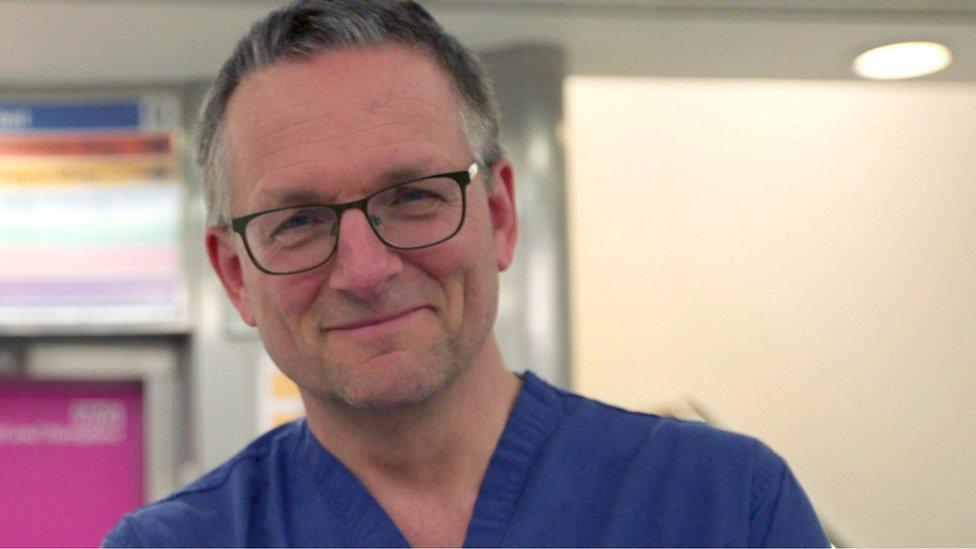Seeing the same doctor over time 'lowers death rates'
- Published
- comments

Repeated contact with the same doctor can be beneficial in many ways
Patients who see the same doctor again and again have lower death rates, a study suggests.
The benefits applied to visits to GPs and specialists and were seen across different cultures and health systems.
University of Exeter researchers said the human aspect of medical practice was "potentially life-saving" but had been neglected.
GPs' leaders said they recognised the value of patients seeing "their own" doctor.
Because of intense workforce pressures, however, this could mean waiting even longer for an appointment, the Royal College of GPs said.
Continuity of care is known to be particularly beneficial for patients with chronic conditions, long-term mental health issues and complex needs.
The study, published in BMJ Open, analysed the results of 22 studies in nine countries, including England, France, US, Canada and South Korea.
Eighteen of the studies indicated that contact with the same doctor over an average of two years meant fewer deaths over the periods studied, compared with other patients.
The researchers said continuity of care was important and should be given a higher priority in healthcare planning.
'Better communication'
Prof Philip Evans, from the University of Exeter Medical School, said: "Continuity of care happens when a patient and a doctor see each other repeatedly and get to know each other.
"This leads to better communication, patient satisfaction, adherence to medical advice and much lower use of hospital services."
Sir Denis Pereira Gray, from St Leonard's GP practice in Exeter, who also worked on the study, said: "Patients have long known that it matters which doctor they see and how well they can communicate with them.
"Until now, arranging for patients to see the doctor of their choice has been considered a matter of convenience or courtesy.
"Now, it is clear it is about the quality of medical practice and is literally 'a matter of life and death'."
Team effort
Prof Kamila Hawthorne, vice-chair of the Royal College of GPs (RCGP), said many practices were trying out different approaches such as patients being assigned a team of healthcare professionals, including a GP, who had access to their records and could build relationships with them.
She said: "Balancing continuity of care with timely access to GP services is a huge challenge for general practice. And ultimately the answer is more GPs and more resources for the profession."
NHS England has pledged £2.4bn extra a year for general practice and 5,000 more GPs by 2020.
The RCGP said these must be delivered to safeguard the future of general practice and patient care.
- Published29 June 2018
- Published24 June 2018
- Published28 June 2018
